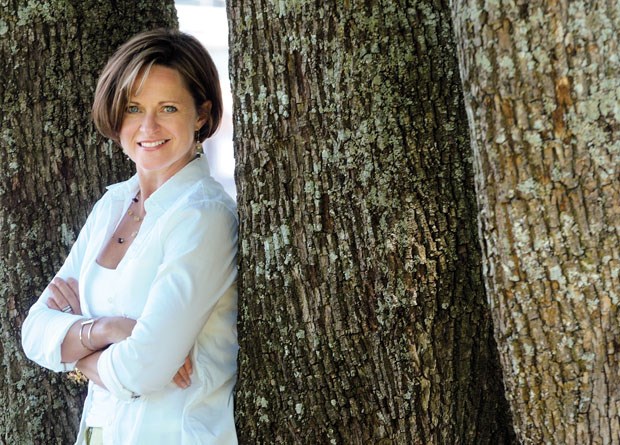April 19, 1996, is a day Lisa Roness says she will never remember and never forget.
Just 24 years old at the time, Roness was training for her first marathon. It was two weeks away.
She had also just been accepted to a university social work program and decided to go out for a celebratory bike ride.
While biking home from a trail ride in the Okanagan, where she lived at the time, she hit a pothole in the road while riding down a hill, was catapulted off her bike, and landed on her head.
She had just bought a new racing helmet four days earlier and believes it saved her life.
Even with the helmet on, Roness still sustained a traumatic brain injury and spent three weeks in a coma.
Her prognosis was bleak, and her parents were told not to expect too much recovery.
When Roness woke up from the coma, her right side was paralyzed and she couldn’t speak.
She spent the next five months in the hospital’s rehab unit. Cognitively she had regressed in some ways to about 12 years old and remembers answering doctors’ questions about the day of the year and her interests as though she was a kid: she wanted to be a ballet dancer when she grew up and the date was 1984.
Five months of intense daily therapy as an in-patient was followed by two years of outpatient treatment learning to walk, talk, acquire basic life skills, and even learn to write left-handed.
“It was sort of like coming out of a fog,” says Roness of her time in rehab.
Although she had to shift her priorities to focus on day-to-day recovery, Roness says she maintained a positive outlook throughout her rehabilitation, noting she had so many goals and things she wanted to accomplish, she knew she had to recover.
Two years after her injury, Roness reapplied to university and was accepted. She completed her social work degree and finished at the top of her class, moving on to the University of Toronto to complete a master’s degree in clinical counselling, and became a registered clinical social worker.
“I was just very determined. Nobody was going to shut down my possibilities or tell me I couldn’t do something,” says Roness.
After many years of hospital social work and then in private practice, Roness relocated to Horseshoe Bay with her husband and two kids four years ago. She took a bit of time off to adjust to the move and is now back in private practise, but this time with a unique approach.
Roness uses a form of outdoor therapy with her clients. After an initial consultation over the phone, she arranges to meet clients on a local trail and they walk and talk for their session.
“This is my outdoor office,” says Roness. “I notice that people open up so much more when you’re outside walking and around nature.”
June is Brain Injury Awareness Month, and Roness is a guest speaker at the Fraser Health Authority’s Brain Injury Awareness event. Her message for anyone who is struggling with life challenges is to never give up and always be looking for new possibilities.
“It’s just so easy to become stuck in our thought patterns,” she says. “Much like our bodies need movement, I think our thought patterns that become stuck need movement as well.”



